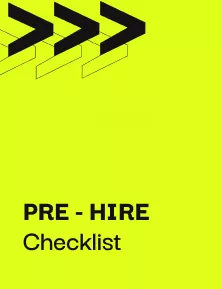Why Sales Scripting is Essential for B2B Founders

What is a Sales Script?
In the B2B startup ecosystem, there’s an understandable emphasis on product development and product growth. But let’s not overlook a vital part: sales. Sales conversations, whether a cold call or a pre-scheduled appointment, mark the first genuine interaction potential customers have with your brand.
Imagine you’re about to embark on a journey filled with unknown twists and turns. You’re handed a map guiding you through the complex terrain. A sales script is that map for sales reps, founders, and sales teams in B2B SaaS startups. It’s a word-for-word guide that helps navigate through conversations with customers, turning potential chaos into a smooth sales process.
A sales script is not just a set of rehearsed lines. It’s a strategic tool designed to guide a sales rep through a conversation with a prospect, hitting all the critical points and pain points and leading to a successful close.
In this guide, we’re going to unravel the dynamics of sales scripting, discuss crafting compelling sales pitch scripts, prepare for your cold call script and calls, and set up the framework for your sales representatives whether you’re using a founder-led sales approach or are just starting to build your sales function.
The Critical Role of Sales Scripts
Sales scripts play a vital role in the sales cycle. They act as a blueprint for new employees and experienced sales reps alike, providing structure, confidence, and direction. Sales scripts help founders handling sales, sales managers, and sales reps identify the prospect’s needs, offer solutions, and effectively handle objections.
Think of it like this: You’re a chef, and you’re trying to whip up a new dish. A recipe (or, in this case, a sales script) gives you step-by-step guidance to create something delicious. Without it, you might end up with a culinary disaster.
The Art of Creating Effective Sales Scripts
How do you Write a Killer Sales Script?
Writing a great sales script is an art, much like painting or writing a song. It requires creativity, a deep understanding of your product, your target audience, and the pain points they face. To begin crafting a sales script that generates results, you need to:
- Know Your Audience: Understanding your customers’ needs, pain points, and desires is essential. Tailoring your sales script to address these aspects creates an authentic connection and makes your message resonate.
- Be Clear and Concise: Avoid jargon and complex language. Keep it simple and to the point.
- Be Flexible: A rigid script can make interactions feel robotic. Flexibility is essential in adapting sales scripts to connect with your leads and cater to their specific needs. By reading the situation and adjusting the sales pitch accordingly, a proven script can guide your growing team to success.
- Add Personality: Making your sales scripts sound human is essential for building trust and connection. Inject personality into your script. Use stories and examples to illustrate your points. Don’t be afraid to add a dash of humor where appropriate. Add warmth and a human touch.
- Use Strong Call to Action: Your sales script should guide the prospect to a decision. A compelling call to action prompts them to take the next step.
- Test and Refine: A script is never set in stone. Test it, gather feedback, and continuously refine to make it even better
Structuring a Winning Sales Script
A successful sales script isn’t just about what you say; it’s about how you say it. Structuring your script in a way that flows naturally and hits all the right notes is crucial to success.
- Start with Warmth: Start by introducing yourself and your company name. Create rapport by finding a mutual connection or referring to a previous conversation.
- Identify the Pain Point: Ask qualifying questions to identify the prospect’s pain points.
- Discuss Current Challenges: What is the prospect’s current solution, and what issues are they facing?
- Visualize the Ideal Solution: Ask about their perfect solution and get specific details about what it would look like.
- Showcase Your Solution: Show how your product or service can solve their problems.
- Confirm Interest: Ascertain if your solution is what they need and if further discussion makes sense.
- Handle Objections: Prepare for objections and know how to turn a ‘no’ into a ‘yes.’
- Close: Seal the deal with a strong closing statement, reinforcing the value proposition.
Preparing for Sales Calls: More Than Just a Script
Preparing for The Sales Call: Research is the Foundation
“You wouldn’t build a house without laying a strong foundation, would you?” my old mentor used to say. The same goes for sales calls. Research is the foundation that supports everything else.
Digging into the details about the prospect company, the industry, and the decision maker helps you craft a sales pitch that resonates. It’s an elevator pitch that is not just about throwing out features of your product or service; it’s about showing how those features solve real problems for the prospect.
As a founder leading sales or a sales rep responsible for acquiring new customers, understanding their pain points, goals, and challenges enables you to present your offering in a way that makes sense for them. It turns a generic sales pitch into a personalized conversation.
Don’t be afraid to spend a few minutes (or more) on research. Those minutes could make the difference between a closed deal and a lost opportunity.
More steps to prepare for sales calls
Preparing for sales pitch is like setting up the stage for a performance. You need to know your lines (or in this case, your sales call script), understand your audience (the potential customer), and have a plan for handling any unexpected twists.
Here are some more essential steps to take after doing your research:
- Identify the Decision Maker: Knowing who holds the power to make decisions enables you to direct your pitch to the right person.
- Understand the Product or Service: You’re the expert on what you’re selling, but understanding how it fits the prospect’s needs is key.
- Have Social proof: Having proof of similar customers who have achieved success while using your product is crucial to closing deals
- Prepare for Objections: Having ready responses to common objections shows you’re prepared and builds trust.
Choosing the Medium for Sales Calls: Audio or Video?
Technology’s rapid progression has introduced new dimensions to sales calls. While traditional audio calls still hold substantial value, video calls have gained popularity. But how do you choose between them for your outreach strategy?
Phone calls
These are traditional audio-only calls. They offer a level of comfort and familiarity but may lack the personal connection that video can provide. They offer flexibility and are less intrusive.
Phone calls allow for multitasking, an amazing feature for busy executives and business owners. However, the absence of visual clues in cold calls might sometimes make the conversation less engaging. The goal is to make the potential customer comfortable and facilitate a productive dialogue, regardless of the chosen medium.
Video Calls
Video adds a face-to-face element, allowing for more connection and engagement. But it also requires more preparation, ensuring both you and your background look professional.
Video calls can be instrumental in building a stronger mutual connection with your customers. The virtual face-to-face interaction allows for reading and reacting to non-verbal cues, offering a deeper level of engagement. However, ensure your sales team is proficient in this medium, as a poorly executed video call might backfire
Enhancing Sales Reps Conversations with Audio and Video Tools
When it comes to choosing between audio or video calls, having the right tools can make a significant difference. Your chosen medium can impact the conversation and potentially even your conversion rates. Let’s explore some popular tools that cater to both mediums:
Hubspot Sales Hub
Offers seamless calling and video integration, allowing the sales rep to switch between audio and video with ease.
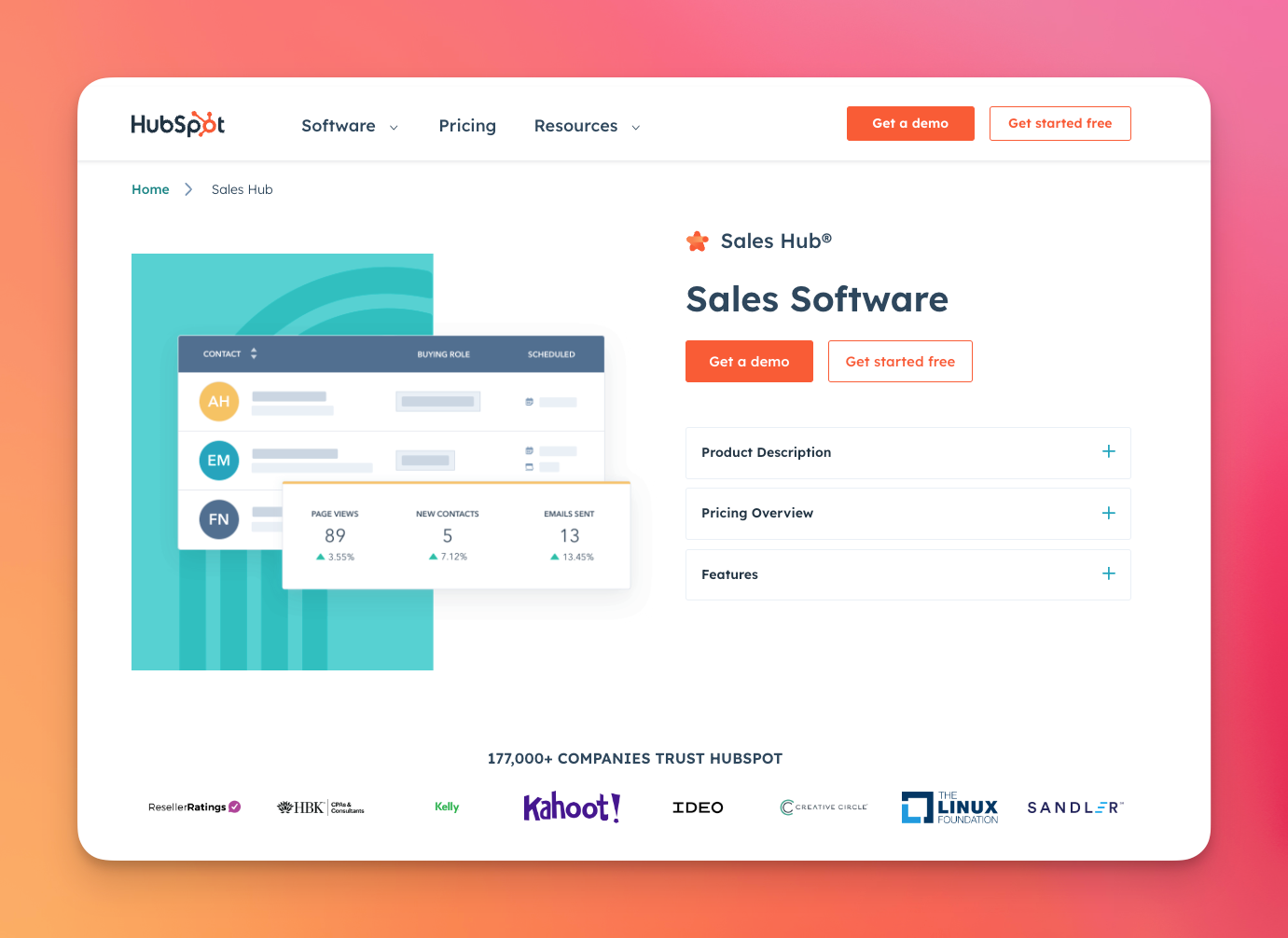


Dialpad
A modern phone system that provides high-quality audio calls with features like voice transcription and analytics.



Zoom
Known for its video conferencing capabilities, Zoom also supports audio calls, making it a versatile tool for business conversations.
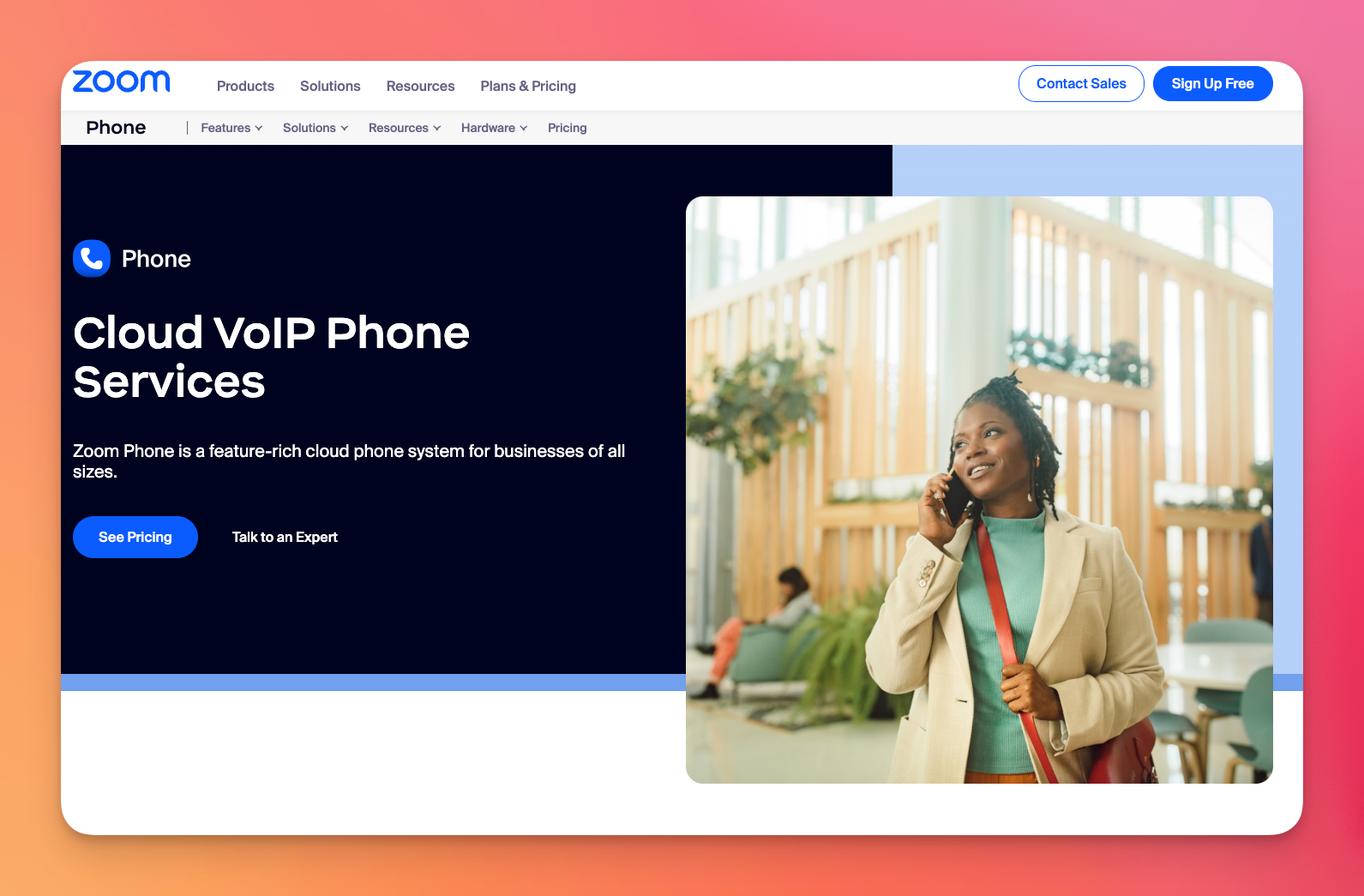


Aircall
A cloud-based phone system designed for sales teams, offering advanced call routing, analytics, and integration with CRM platforms.
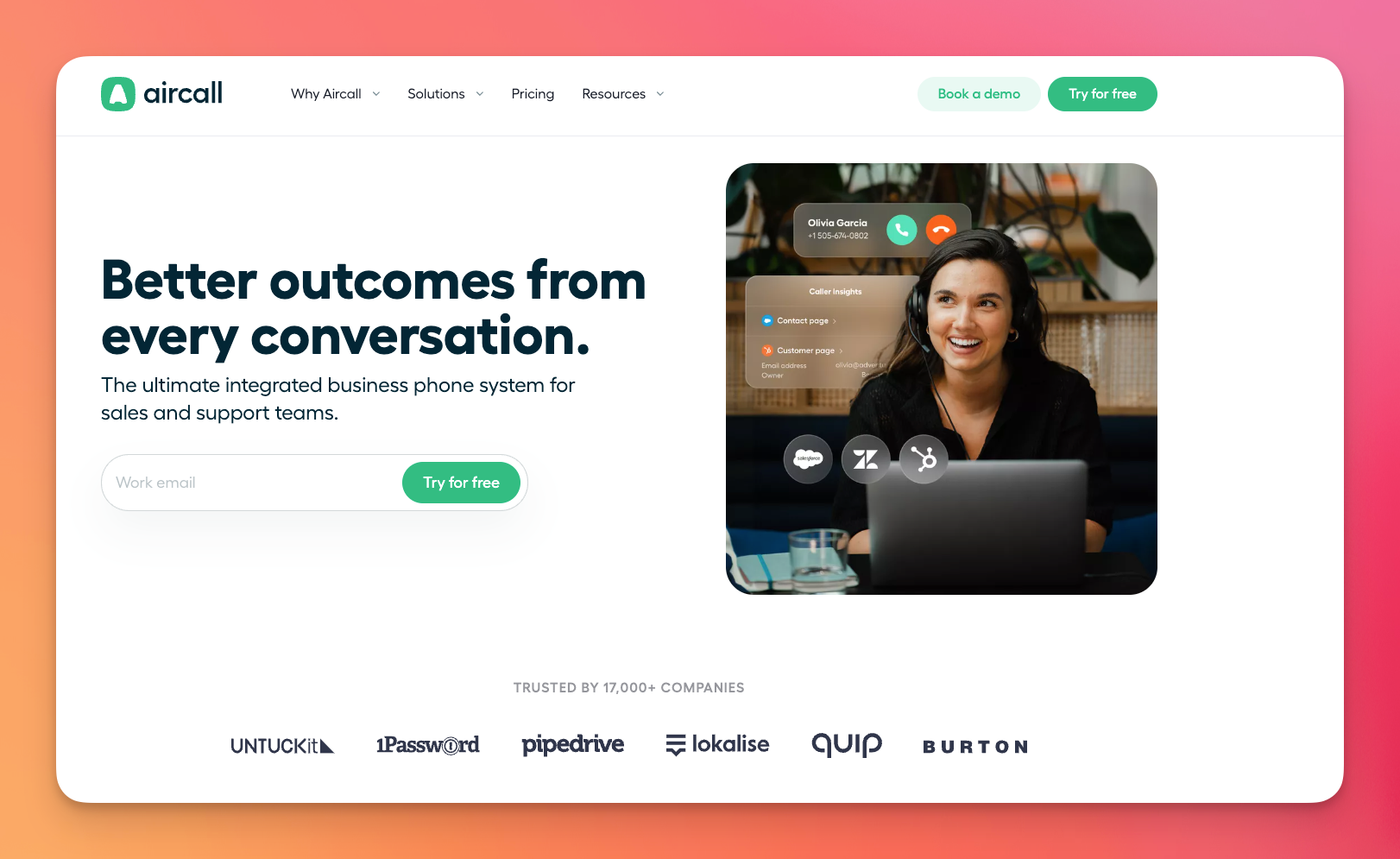


Close
Besides its CRM functionalities, Close provides integrated calling and SMS, supporting both audio and video communication.
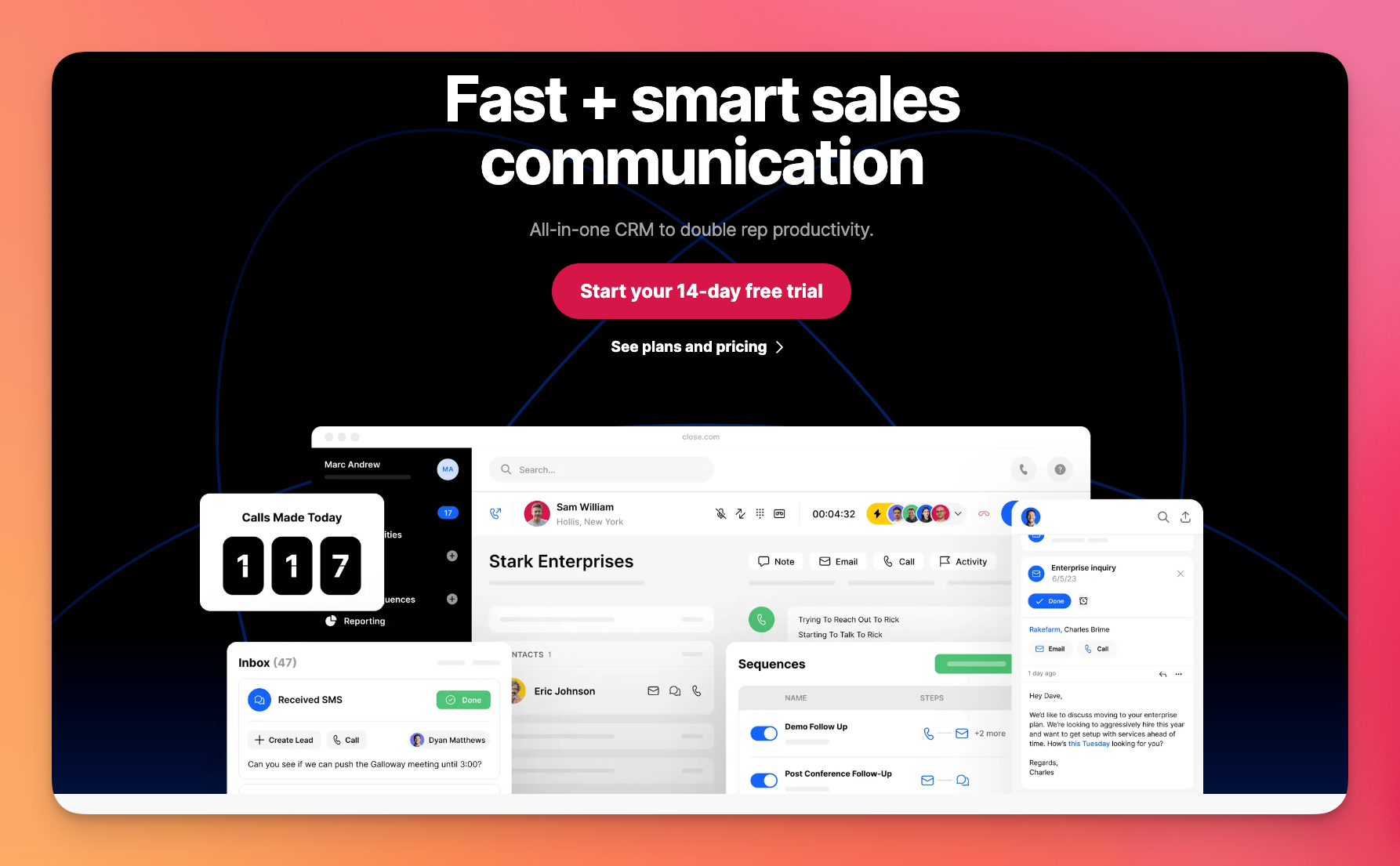


Whether it’s a casual audio check-in or a formal video presentation, these tools provide the flexibility and functionality to suit various sales scenarios. They’re like the modern-day toolbox for sales reps, ensuring that every call, be it audio or video, is an opportunity to connect, engage, and close deals.
The choice between audio and video depends on your comfort level, the nature of the sales call, and the preferences of your sales representatives and your customers.
Sales Call Scripts
What is an Example of a Sales Call Script?
A sales call script is like a roadmap for a sales conversation, guiding both new hires on cold calls, and experienced sales reps through the various stages of the call.
The best sales call script is not a one-size-fits-all solution. It’s one that’s tailored to the prospect, resonates with their needs, and leads them to a decision. It’s a balance of structure, flexibility, and personalization. Let’s explore an example of a cold call script:
- Introduction: “Hello [Prospect’s Name], this is [Your Name] from [Company Name]. We spoke last week about your interest in improving your sales game. How’s everything going?”
- Identifying Needs: “I understand that you’re looking to boost your sales numbers. Can you tell me more about the challenges you’re facing?”
- Presenting Solutions: “Our product offers [features] that directly address your pain points. Here’s how it can help…”
- Handling Objections: “I know the cost might seem high, but consider the value you’ll gain in the long run…”
- Closing: “Would you like to move forward with this? I believe it can make a real difference to your sales processes.”
The key to cold calling is to be concise, engaging, and to provide value right from the start. This sales pitch script is flexible and can be adapted to any phone number, different cold calling scripts and situations.
There are tons of sales pitch script examples out there, and there is no one way to craft them. I’ve compiled a basic sample to be used as a starting point to craft your own sales script.
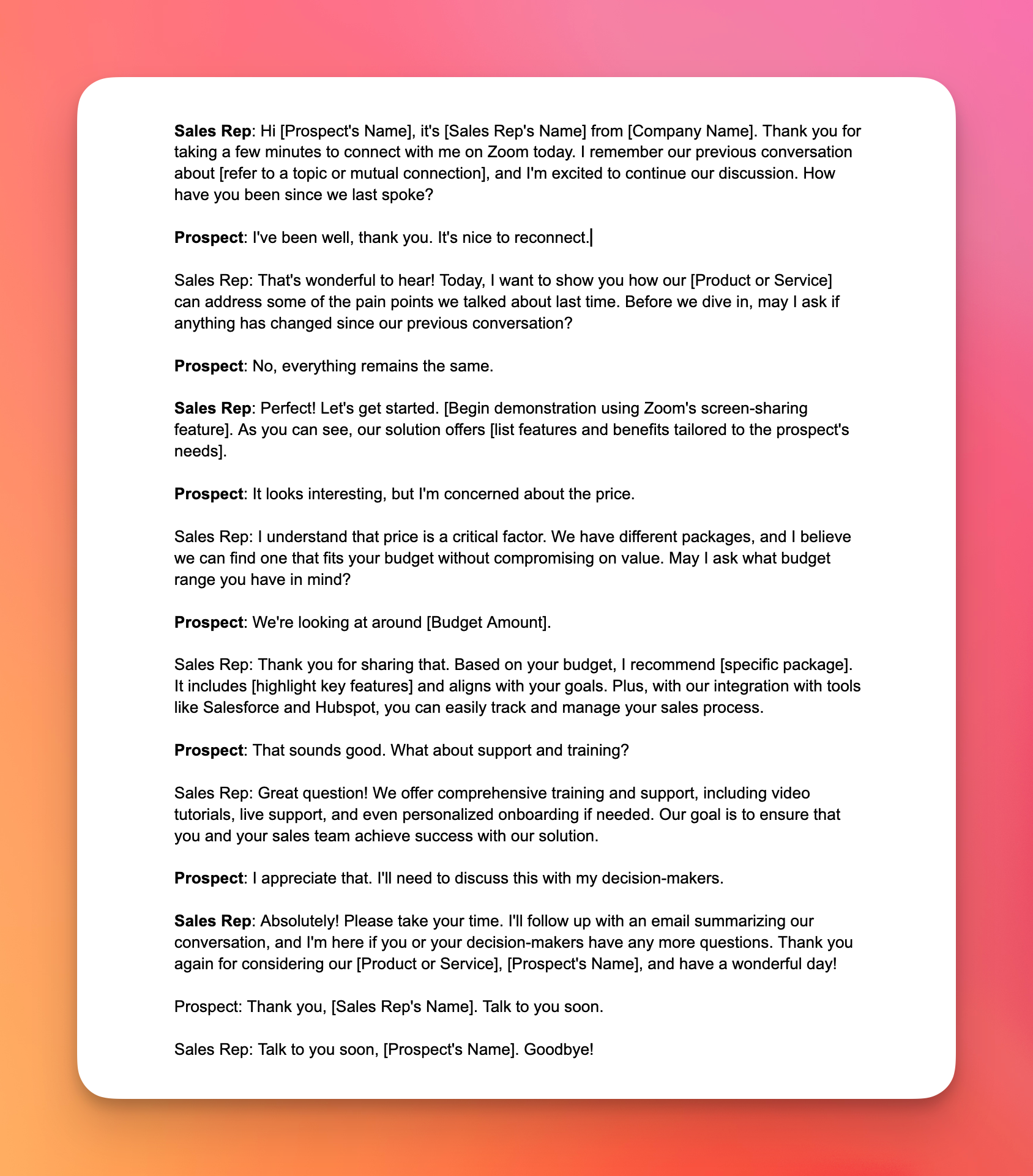


Sales Script Training
How do you Practice a Sales Pitch Script?
Practicing sales scripts is like rehearsing for a performance. You don’t just read the lines; you embody them, understand the emotions behind them, and make them your own. Here’s how to practice sales call scripts:
- Read and Understand: Start by reading the script and understanding its structure and flow. Break it down into sections like introduction, identifying needs, and closing.
- Memorize Key Points: You don’t need to memorize the script word for word. Focus on key talking points and the overall flow.
- Role-Play: Practice with a colleague or even in front of a mirror. Simulate real sales situations.
- Record Yourself: Use your phone to record practice sessions. Listen to how you sound and make adjustments.
- Get Feedback: Ask for feedback from colleagues, sales managers, or mentors. Their insights can help you refine your approach.
- Adapt to Different Scenarios: Practice a different call script for different types of customers. Adapt your approach based on their needs and pain points.
Remember, practice makes perfect. The more you rehearse, the more natural your sales pitch will become. It’s not just about reading lines; it’s about engaging in a meaningful sales conversation.
The Power of Role-Playing in Sales Script Training
Role-playing isn’t just for actors on a stage; it’s a powerful tool in sales script training as well. Imagine you’re a coach, training a team of athletes. You wouldn’t just give them a playbook and send them into the game. You’d run drills, practice plays, and simulate game situations. Sales script training is no different.
By engaging in role-playing, sales reps, whether they’re new hires or seasoned professionals, can practice different sales conversations, handle objections, and hone their skills. Here’s how it works:
- Set a Scenario: Define a specific sales situation, such as a cold call or a follow-up call, and the target audience.
- Use a Script Template: Start with a script template as a guideline but encourage improvisation and adaptation.
- Provide Feedback: After the role-play, offer constructive feedback on what went well and what could be improved.
Role-playing creates a safe environment to experiment, make mistakes, and learn from them. It turns a word-for-word guide into a living, breathing sales conversation.
Managing Your Sales Process and Strategy
Follow-Ups: The Unsung Hero of the Sales Process
In the world of sales, follow-ups are like the unsung heroes, often overlooked but vital to success. It’s not just about making the initial sales call or sending the first email. It’s about staying in touch, building relationships, and nurturing leads.
- Timing is Key: Don’t wait too long to follow up. Strike while the iron is hot.
- Personalize: Use the prospect’s name, refer to previous conversations, and make it personal.
- Provide Value: Offer something useful in your follow-up, whether it’s more detail about your product or an answer to a question they had.
- Use Different Mediums: Don’t just stick to emails. Phone calls, social media, or even handwritten notes can make your follow-ups stand out.
A well-timed and thoughtful follow up calls back-up can turn a lukewarm lead into a closed deal. It’s the attention to detail that often makes the difference.
Handling Objections: The Art of Turning No into Yes
Handling objections is a crucial part of selling. It’s like a dance, where you lead your partner (the buyer persona the potential customer) gracefully through their doubts and concerns, turning a ‘no’ into a ‘yes.’
- Listen Carefully: Understand the objection fully before responding. Ask clarifying questions if needed.
- Acknowledge Their Concern: Show empathy and acknowledge their concern, even if you disagree.
- Present Solutions: Address the objection by presenting solutions that align with their needs.
- Ask for Feedback: After addressing the concern, ask if your explanation resolves their objection.
Handling objections requires finesse, empathy, and strategic thinking. It’s not about bulldozing over concerns but addressing them thoughtfully and convincingly.
Sales Scripts for Small Businesses
Sales scripts aren’t just for startups and large corporations. For small businesses, where resources might be limited, sales scripts can be a game-changer. In a small business environment, sales scripts:
- Provide Consistency: Sales scripts ensure that every sales rep is delivering a consistent message, regardless of their experience level.
- Save Time: With a script template, sales reps can focus more on selling and less on figuring out what to say.
- Enhance Training: For small businesses looking to grow, sales scripts provide a foundation for training new hires.
- Adapt and Personalize: Small businesses can use script templates as a starting point, adapting and personalizing them to fit different customer needs.
Sales scripts in small businesses are like a secret weapon, providing structure, efficiency, and effectiveness.
Leveraging Technology in Sales Success
Is There Cold Calling in Tech Sales?
Cold calling in tech sales? You bet! Cold calling may seem like a relic from the pre-digital era, but it’s alive and well in the tech industry. Think of it like a classic movie that never loses its charm.
Here’s why cold calling still has a place in tech sales:
- Reaching Decision Makers: Emails can be ignored, but a phone call to a decision maker can lead to a real conversation.
- Immediate Feedback: On a cold call, you get immediate reactions and can adapt your sales pitch on the spot.
- Personal Connection: A cold call allows you to connect on a human level, something that emails and texts can’t replicate.
Yes, good cold calling requires skill, perseverance, and a great cold calling script, but it’s a tool that successful salespeople in tech sales still wield with finesse.
The Integral Role of CRM Software in Sales Calls
In the realm of sales, CRM (Customer Relationship Management) software is like the backstage crew of a theater production. It’s behind the scenes but plays a vital role in ensuring that everything runs smoothly.
Here’s how CRM software enhances cold calling:
- Track Interactions: Keep a record of every call, email, and interaction with customers.
- Automate Tasks: Schedule follow-up calls, send reminders, and automate repetitive tasks.
- Analyze Data: Gain insights into sales performance, track leads, and identify trends.
- Personalize Communication: Use data to create script templates and personalize calls, addressing the prospect’s name, company, and specific needs.
With CRM software, sales reps have a powerful tool that not only makes their job easier but also more effective. It’s like having a virtual assistant that never sleeps.
CRM Tools for Sales Success
In the fast-paced world of sales, having the right tools can make or break your success. Here’s a breakdown of some popular CRM tools that are transforming the way your sales team connects with qualified leads:
Salesforce
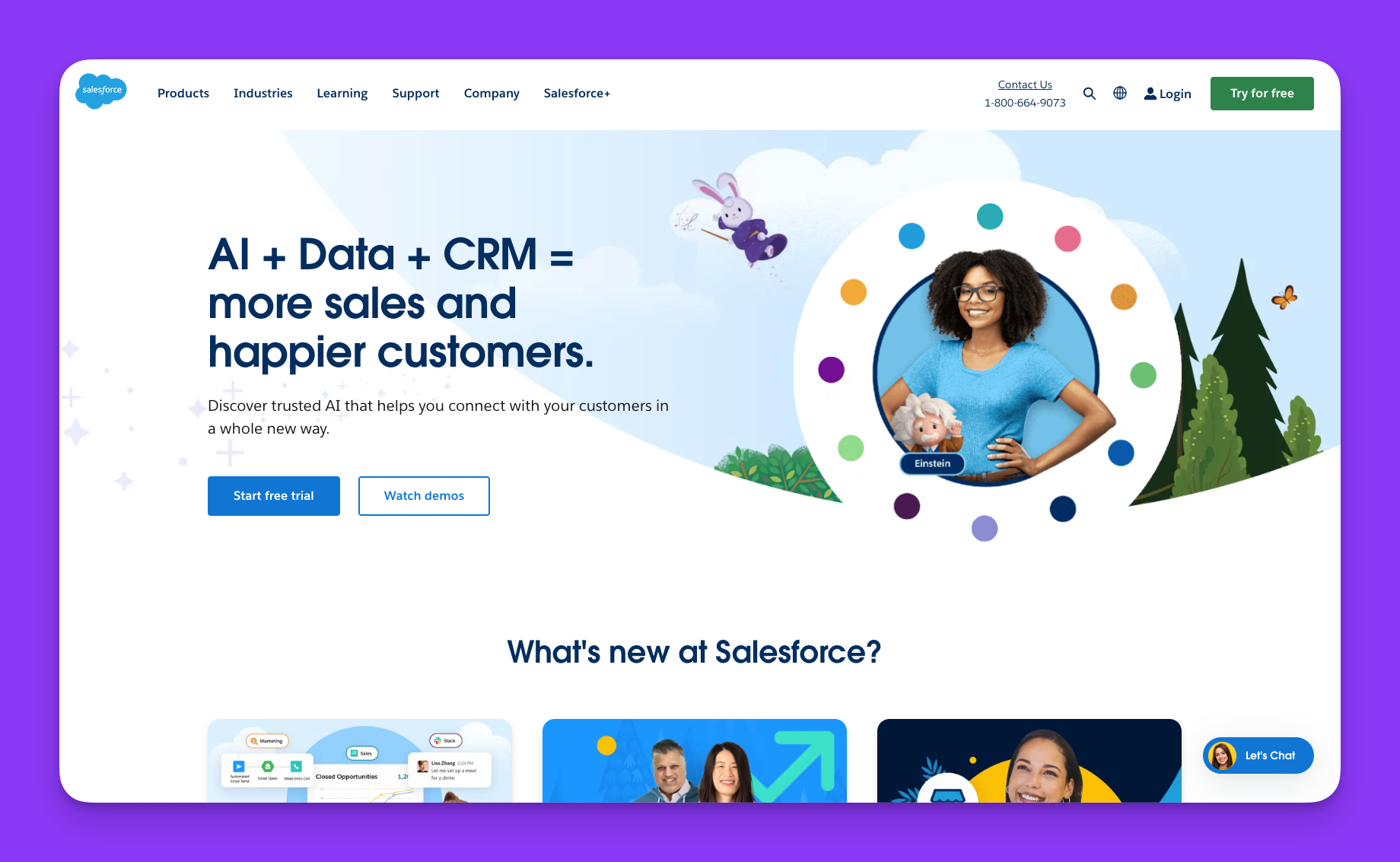


Salesforce is like the Swiss Army knife of CRM tools. It’s versatile, feature-rich, and can be customized to fit your existing sales framework.
- Automation: Automate tasks and workflows to save time.
- Analytics: In-depth reporting and dashboards to track performance.
- Integration: Connects with various other tools and platforms.
- AI Capabilities: Leverage AI for predictive insights and smarter selling.
Hubspot
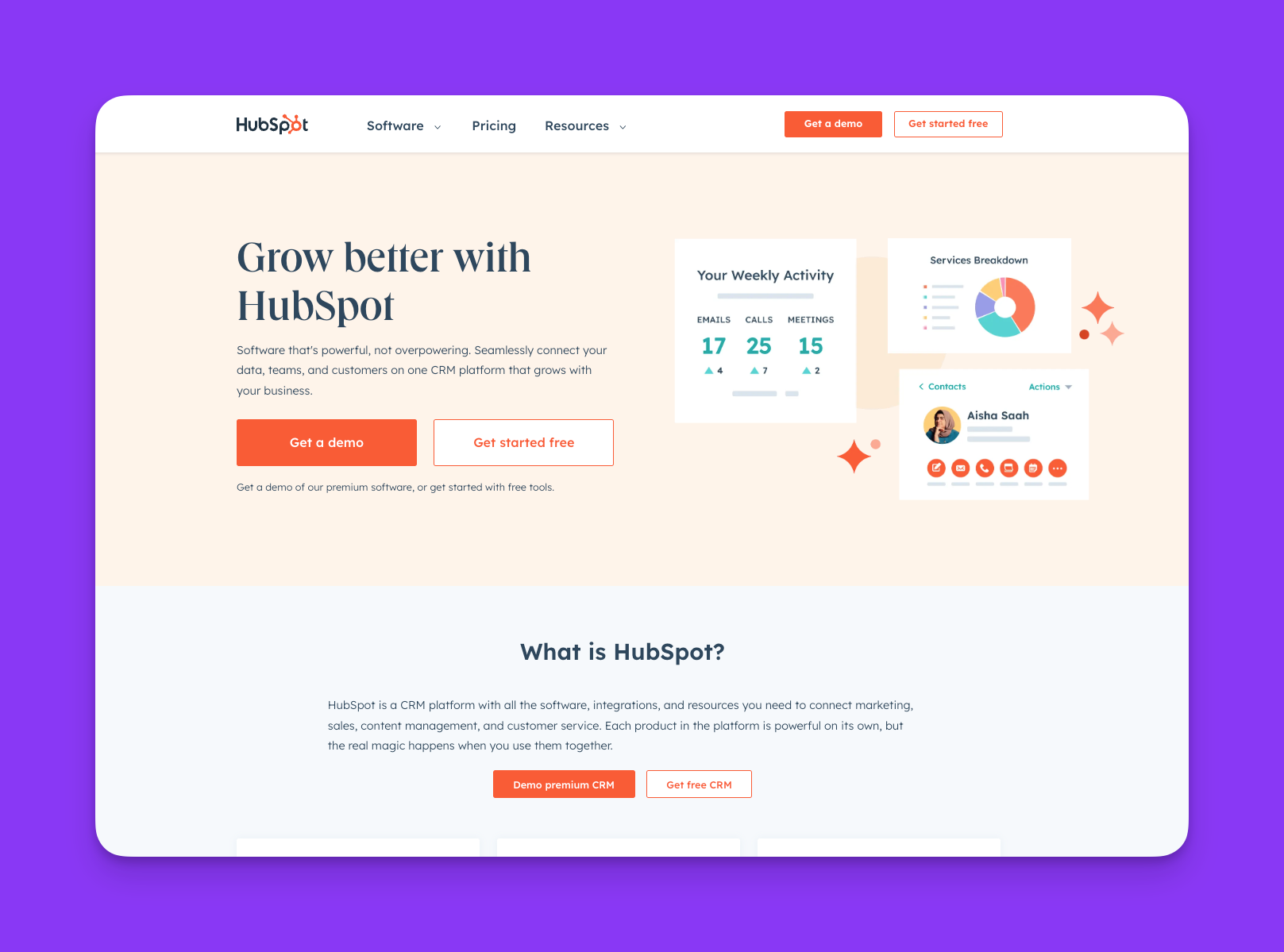


Hubspot is the friendly neighbor of CRM tools. It’s user-friendly, offers free options, and integrates seamlessly with marketing efforts.
- Lead Management: Capture and nurture leads efficiently.
- Email Tracking: Know when emails are opened and clicked.
- Sales Playbooks: Create custom sales scripts and guidelines.
- Integration with Marketing: Unify sales and marketing efforts for a cohesive strategy.
Pipedrive
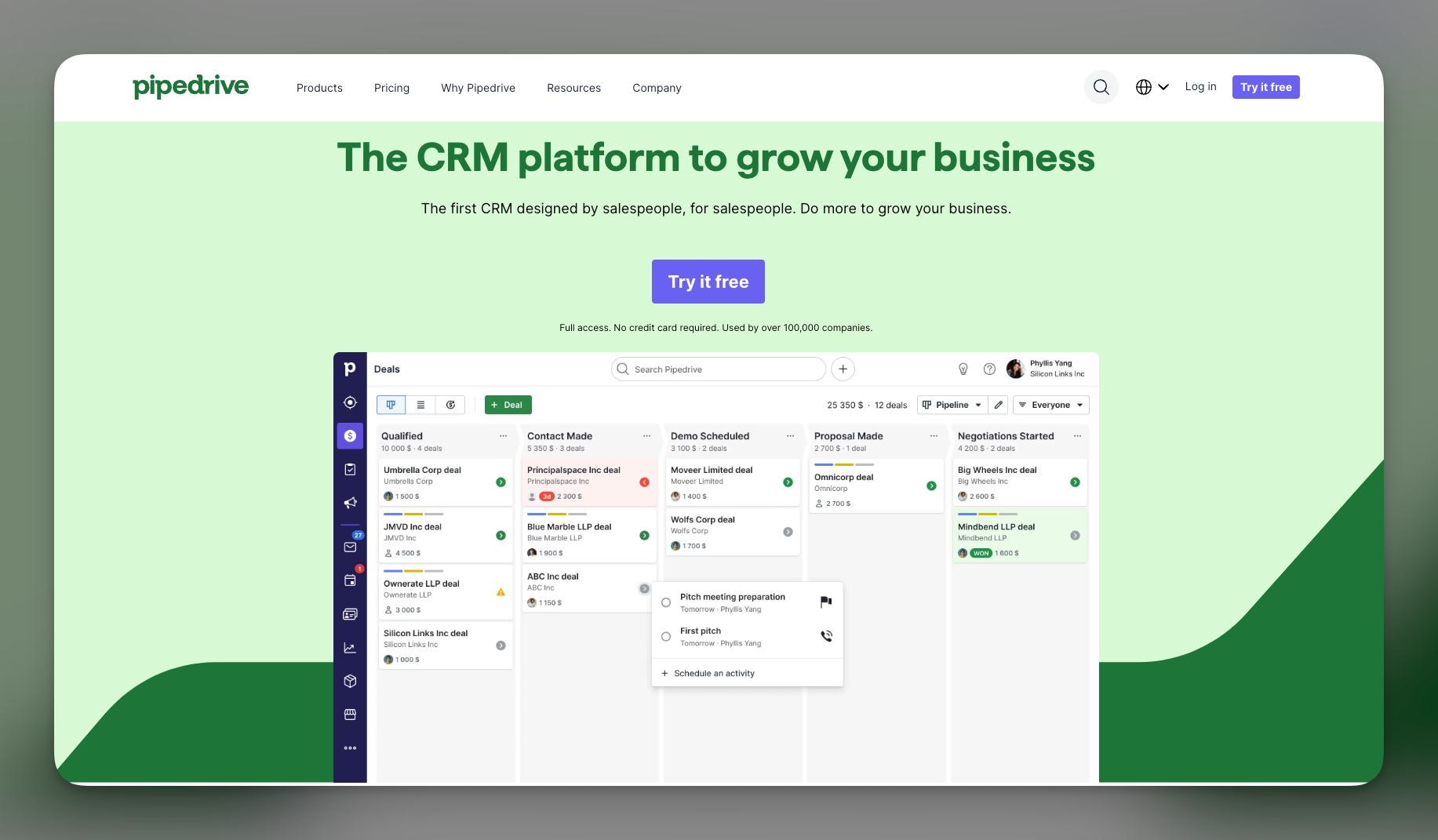


Pipedrive is like the agile sprinter of CRM tools, designed with sales reps in mind, focusing on ease of use and quick actions.
- Visual Sales Pipeline: Easily track deals and progress.
- Customizable: Tailor the platform to your specific sales process.
- Mobile App: Manage sales on the go with a robust mobile app.
- Email Integration: Sync with your email for seamless communication.
Zoho
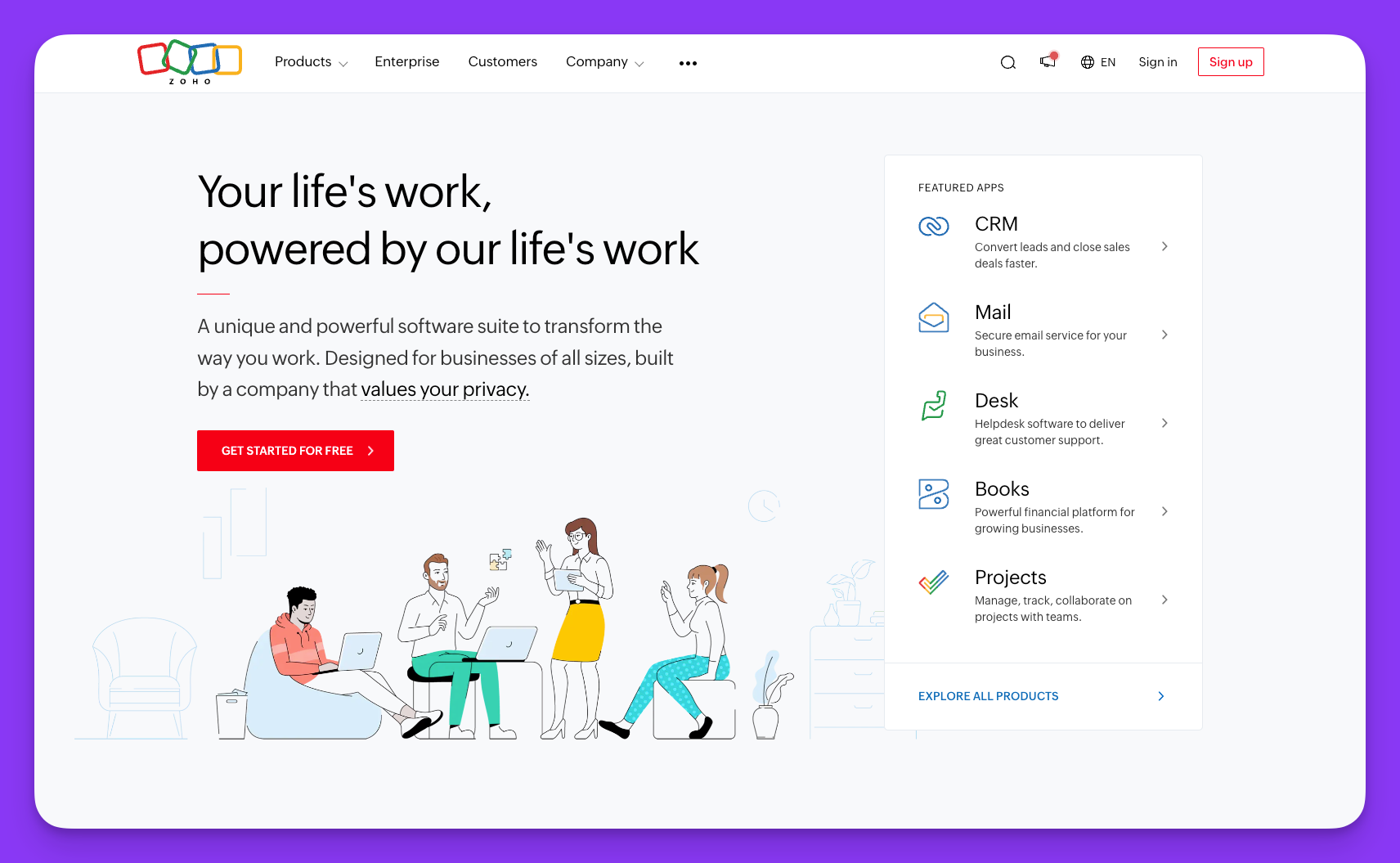


Zoho is the all-in-one solution, offering a suite of tools that cater to various aspects of business, including sales.
- Omnichannel Support: Engage with customers across multiple channels.
- Artificial Intelligence: AI-powered assistant for smarter insights.
- Inventory Management: Track products and inventory within the CRM.
- Collaboration Tools: Work seamlessly with your sales team and other departments.
Monday
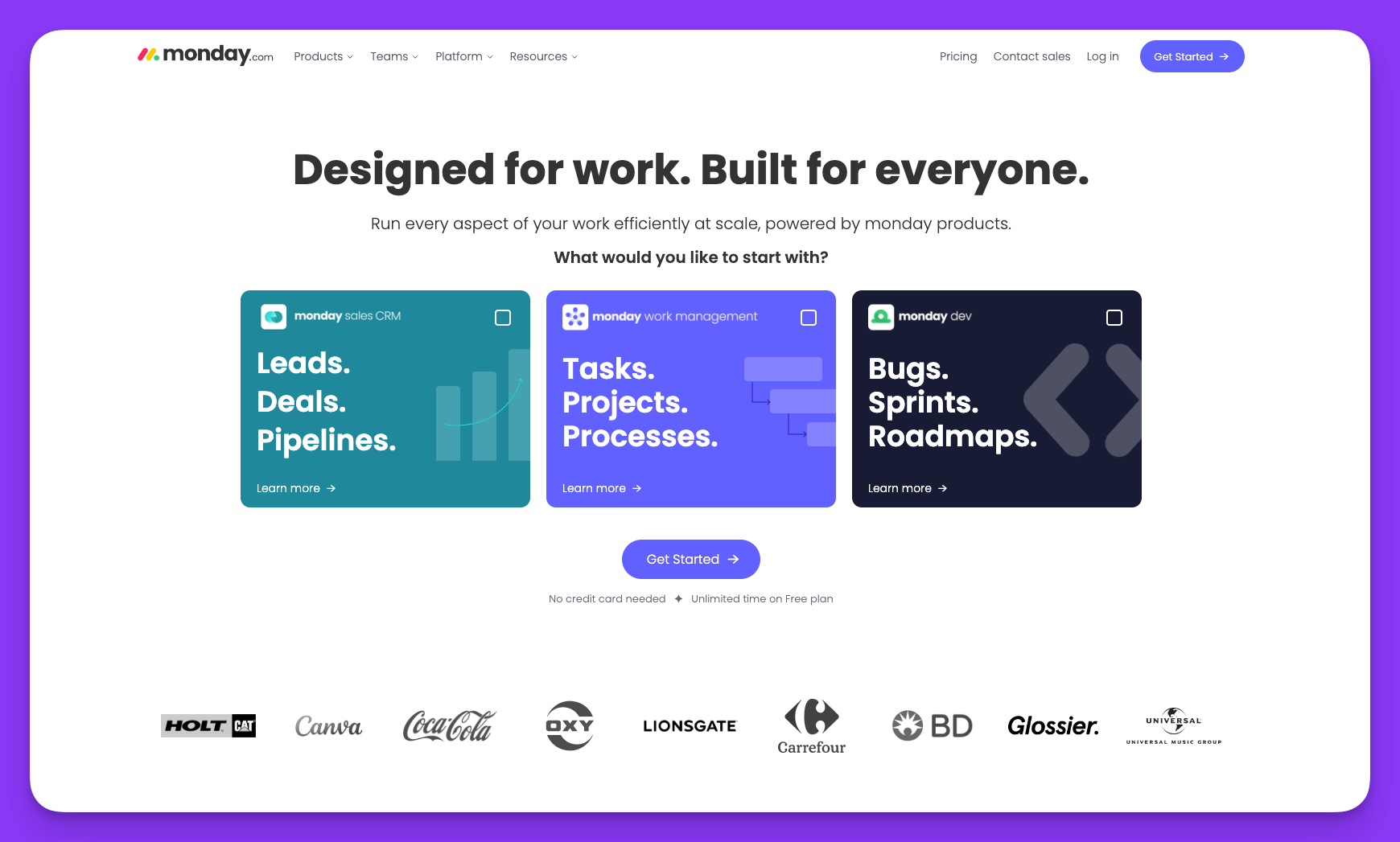


Monday is like the visually appealing artist of CRM tools. It’s colorful, intuitive, and makes managing projects and sales fun.
- Visual Workflow: Create custom boards to visualize your sales cycle.
- Automation: Set up automated workflows and reminders.
- Integration: Connect with other tools and platforms for a unified workspace.
- Collaboration: Engage with your team through comments, mentions, and shared boards.
Close
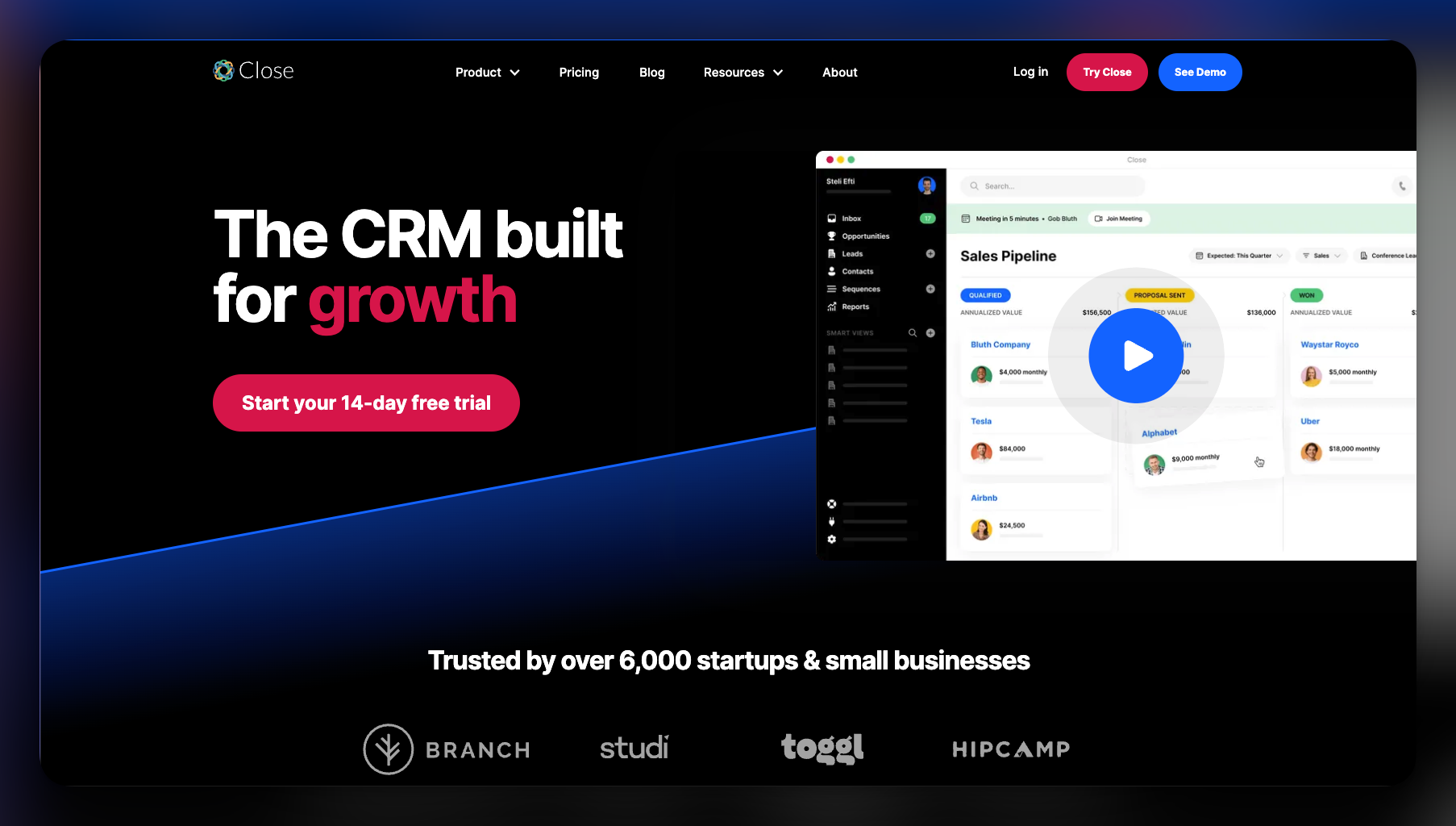


Close is the no-nonsense, straight-to-the-point CRM for sales teams looking for efficiency and effectiveness.
- Built for Sales Reps: Focuses exclusively on features that sales reps need.
- Calling and SMS: Integrated calling and messaging within the platform.
- Email Sequences: Set up automated email follow-ups for leads.
- Reporting: In-depth reporting to track sales performance and trends.
Gong
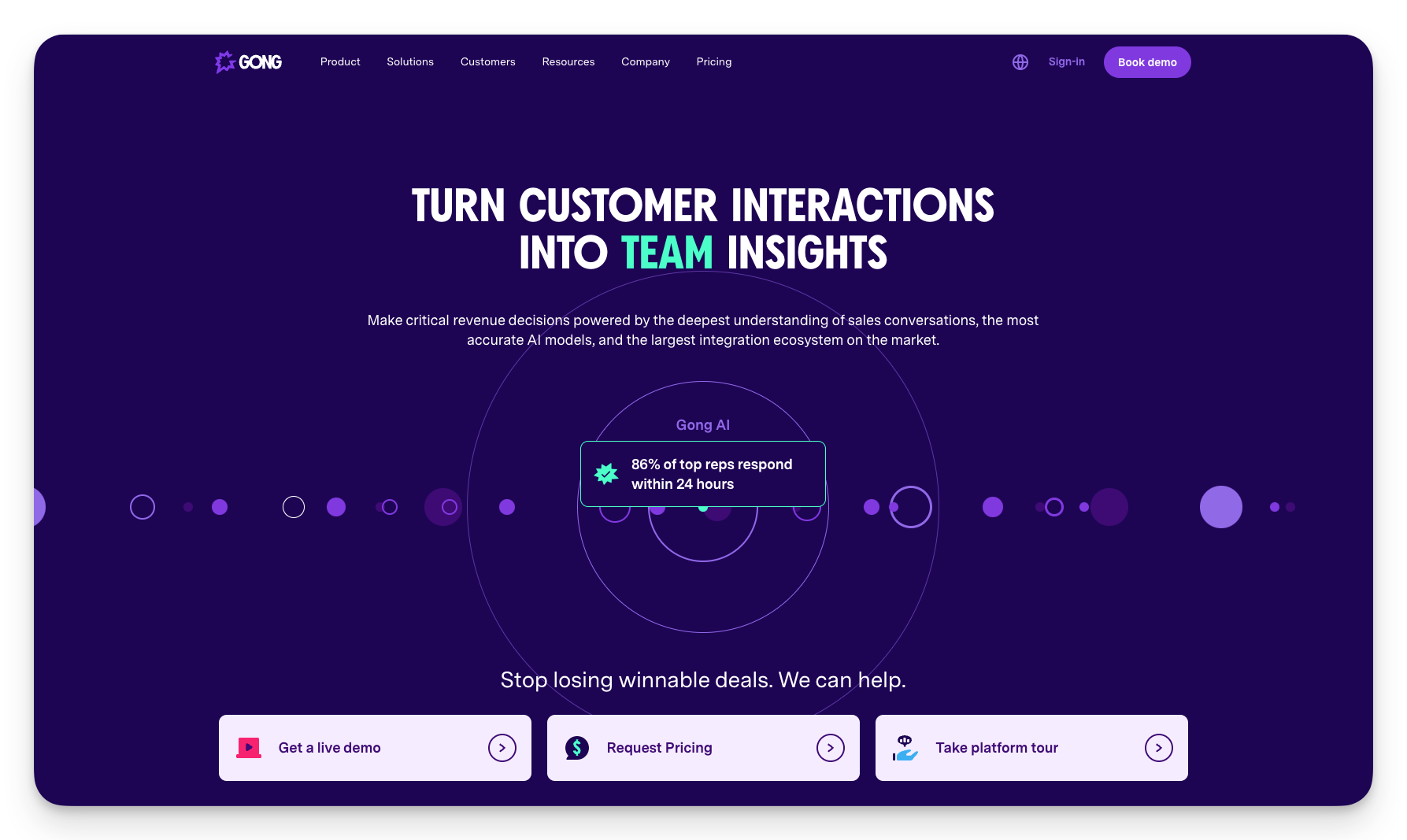


Gong is like the wise mentor of CRM tools, offering insights and coaching based on actual sales data and interactions with sales representatives.
- Conversation Analytics: Analyze sales calls and meetings for insights.
- Coaching: Offers coaching and feedback to sales reps based on real data.
- Integration: Connects with other sales tools and platforms.
- AI-Powered Insights: Leverages AI to provide actionable recommendations.
These CRM tools are the modern arsenal for sales reps, each offering unique features that cater to different needs and styles. They provide the technology backbone for a successful sales game.
Final Thoughts
Navigating the sales world is like embarking on an exciting journey filled with twists, turns, challenges, and wins. Whether it’s mastering the art of crafting a sales script, preparing for the perfect sales call, or leveraging cutting-edge technology, success in sales requires a blend of skill, strategy, and adaptability.
While tools and techniques are essential, the heart of sales lies in genuine connections, empathy, and understanding your pain point and your potential customer’s pain point points. It’s about being human, even when following a script.
If you found this guide useful, I help founders and growing teams with 2-250 employees build their sales function from end to end. Book a free consultation with me to learn more.
Elom is an end-to-end growth marketer with 12 years of experience driving growth and revenue for impact focused companies. He previously worked at high-growth startups like Uber and Worldremit and consulted for early-stage startups like Bristle Health, Gradia, LiliumX. He is obsessed with all things startups, growth marketing and AI.

